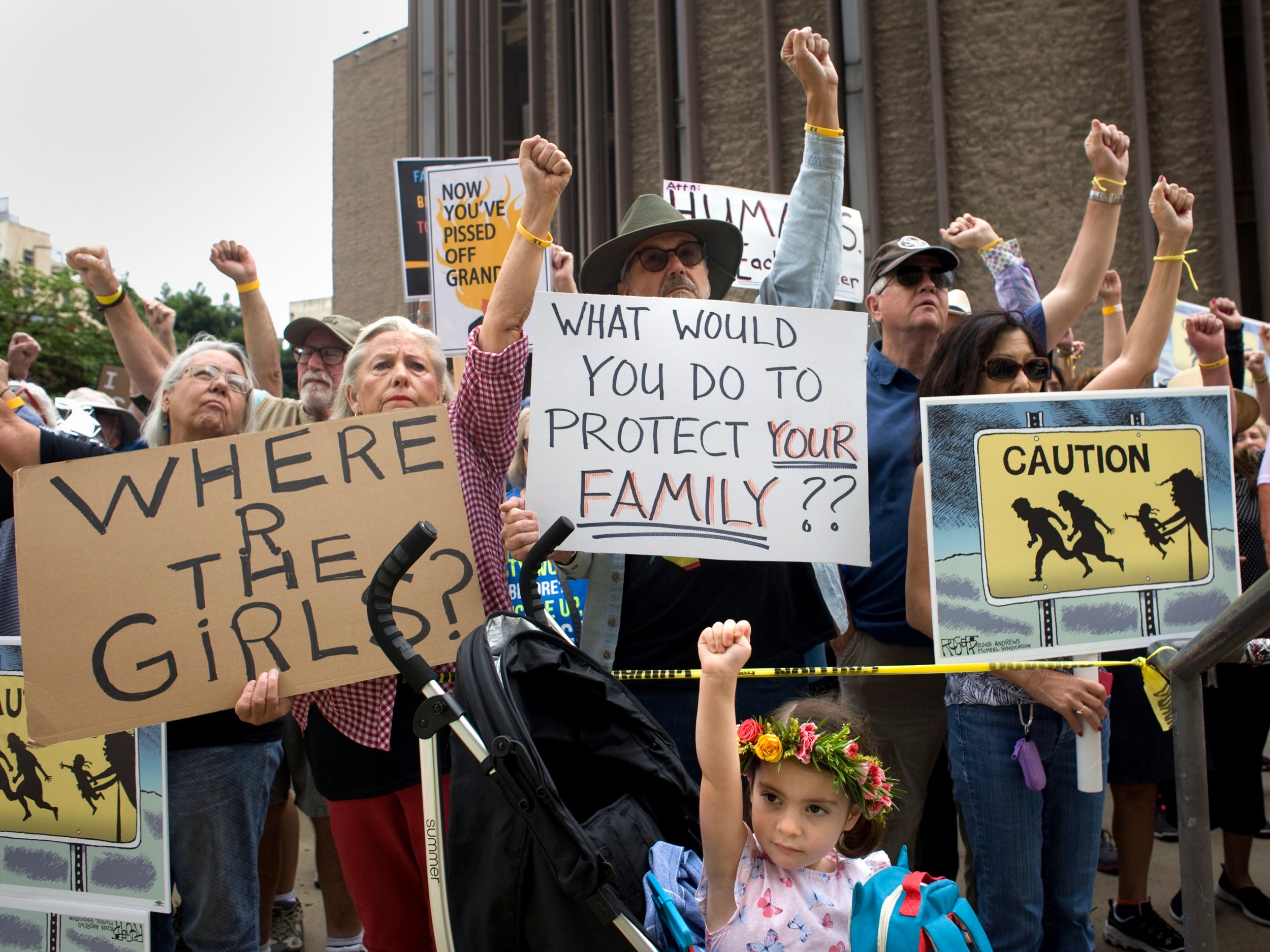US may have deported nearly 500 migrant parents without their children
Advocates say parents were pressured into signing voluntary deportation forms out of desperation to be released from immigration detention

The Trump administration said in a court filing on Monday that 463 parents of migrant children are no longer present in the United States, indicating that the number of mothers and fathers potentially deported without their kids during the “zero tolerance” border crackdown could be far larger than previously acknowledged.
The progress report to US District Judge Dana Sabraw cautioned the 463 cases are “under review”, meaning the filing was not a definitive tally of all migrant parents who have been deported while their children remain in US government shelters.
Mr Sabraw has issued the Trump administration a 30-day deadline – expiring on Thursday – to quickly reunite as many separated families as possible, and last week he asked the government to clarify how many of the more than 2,500 parents eligible for reunions are no longer in the country. He also temporarily suspended deportations of families that have been reunited.
Monday’s filing included no additional explanation, but the government is scheduled to brief the court on Tuesday afternoon about its progress in the reunification effort, and will probably provide more details about the whereabouts of the 463 parents.
Their numbers amount to nearly one-fifth of the parents who were potentially separated from their children prior to Trump’s 20 June executive order halting the practice.
Stephen Kang, one of the attorneys for the plaintiff in the case, the ACLU, said Monday’s filing appeared to be the government’s first attempt, however imprecise, to gauge the figure that his team, the court and many reporters have been pressing for.
“If this number turns out to be as large as the report suggests, this is going to be a big issue for us,” Mr Kang said. “We have a lot of questions.”
Immigrant advocates say migrant parents were pressured into signing voluntary deportation forms out of desperation to be released from immigration detention once their sons and daughters were taken from them and sent to government shelters.
“We have concerns about misinformation given to these parents about their rights to fight deportation without their children,” said Mr Kang. Locating them in Central America will be challenging and time-consuming, he said.
The Trump administration insists that all of the migrant parents who were deported gave their written consent and were duly informed of their rights in their native tongue.
According to Monday’s filing, the government has reunited 879 parents with their children so far, up from 450 on Friday. Another 538 parents have been cleared for reunions and are awaiting transportation, meaning that at least half of the separated families will likely be back together by Thursday’s deadline.
Under court order, the administration prioritised the cases of more than 100 parents whose children were younger than age 5, and the government has since moved on to the much larger 5-to-17 age group. After conducting background checks on parents and confirming familial relationships, the government interviews the mothers and fathers to ask if they want their children back before proceeding.
So far, 130 of those parents have opted against a reunion, in some cases preferring their children be allowed to remain in the United States with another relative while their immigration appeals are pending.
The Washington Post
Join our commenting forum
Join thought-provoking conversations, follow other Independent readers and see their replies
Comments